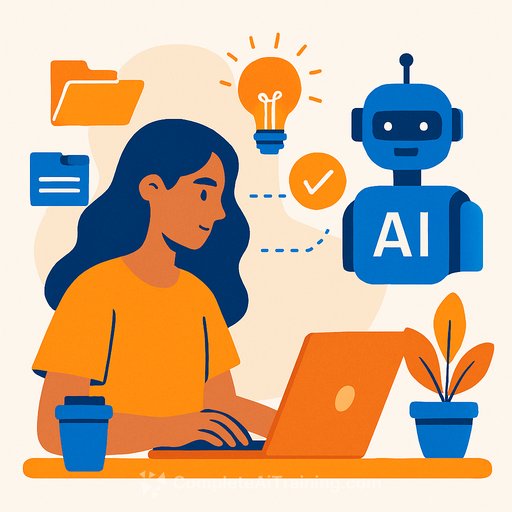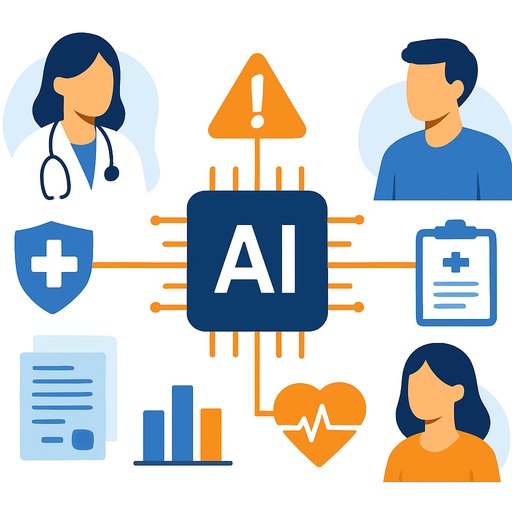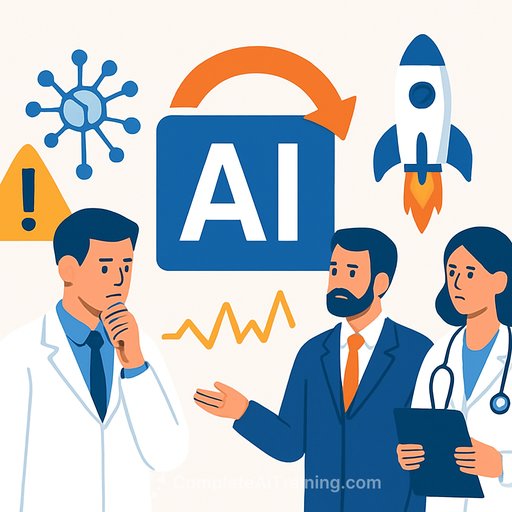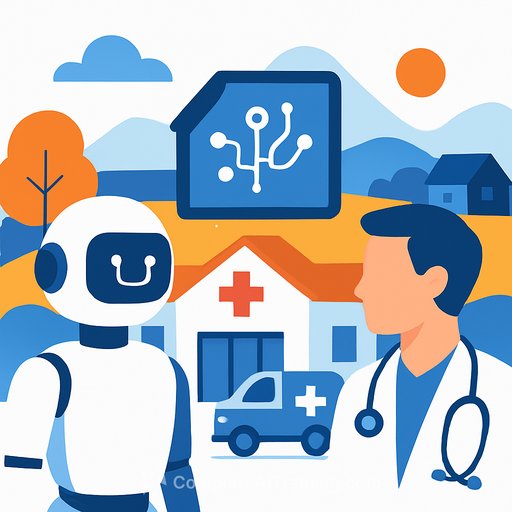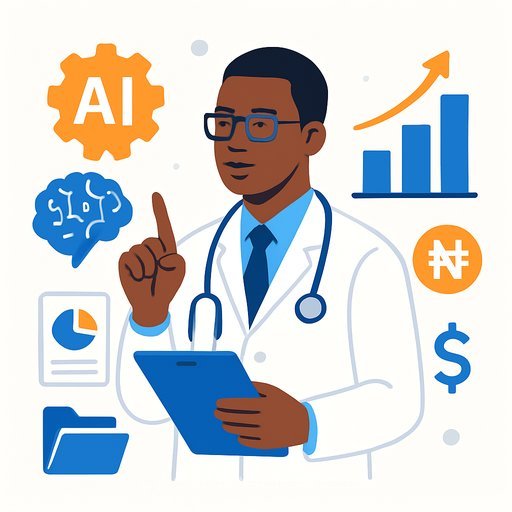Gen Z is quietly AI-proofing their careers - what healthcare can learn
While headlines argue about timelines, Gen Z has moved on. They're picking careers that keep them useful, human, and employed. That includes healthcare. The lesson for anyone already in healthcare: stay human where AI struggles, and stack skills that AI amplifies.
The quiet shift: stability over hype
Young workers are changing college majors, choosing "AI-proof" paths, and building income on the side. Fast Company reporting shows a clear trend: healthcare and trades are in, traditional entry-level office roles are out.
Glassdoor data indicates 70% of Gen Z has questioned job security because of AI, and 65% believe a degree alone won't protect them. Many are leaning into work that needs hands, empathy, and judgment. Some trades are already paying around $100,000 before age 21; the signal is simple-choose work where reality is messy and human.
Why healthcare stays resilient
AI can assist, but it struggles with ambiguity, context, and trust. Healthcare is full of edge cases, complex coordination, and high-stakes decisions. Patients want human presence when outcomes matter.
Roles with direct patient contact, complex assessments, and ethical decision-making keep their value. Clinicians who can use AI to handle paperwork while deepening patient care will outperform.
What to do now if you work in healthcare
- Prioritize human-centric work: acute care, primary care, behavioral health, palliative care, rehab, complex case management.
- Stack high-signal credentials: licensure plus specialty certs (e.g., critical care, oncology, perioperative, behavioral health).
- Use AI for grunt work: chart prep, coding suggestions, discharge summaries, patient education drafts-always review for accuracy and compliance.
- Lean into coordination: interprofessional teamwork, care transitions, and social determinants-areas that require judgment and relationships.
- Strengthen trust skills: bedside communication, motivational interviewing, cultural competence, informed consent.
- Know the rules: HIPAA, data privacy, model limits, and documentation standards when using AI in any workflow.
- Measure outcomes: track efficiency, patient experience, and safety to prove your impact.
Side hustles as quiet resilience
Gen Z treats side income like infrastructure, not a personal brand. 57% already run a side hustle, compared with 48% of millennials. Healthcare pros can do the same without announcing it to the world.
- Per-diem shifts or float pools for higher hourly rates.
- Telehealth blocks, remote patient monitoring, or after-hours triage.
- Clinical tutoring, exam prep, or CE content creation.
- Workflow consulting for small practices (templates, intake, compliance checklists).
- Health content writing with strict sourcing and disclaimers.
Lessons older workers can apply
- Pivot early: shift duties toward patient-facing and complex work now, not after roles get automated.
- Diversify income: add one small, repeatable revenue stream that fits your license and schedule.
- Skill pairings beat single tracks: clinical specialty plus AI fluency plus compliance awareness.
- Stay quiet, stay consistent: less debate, more reps. Adjust quarterly.
For healthcare leaders and educators
- Offer AI-in-practice training: documentation assistance, patient comms, and risk controls.
- Fund certifications that deepen human value (critical care, behavioral health, care coordination).
- Create internal gig options: short telehealth blocks, weekend clinics, project stipends.
- Protect time for learning: 2-4 hours per month for workflow upgrades and testing tools.
Gen Alpha is coming with multi-path careers
Studies suggest most Gen Alpha expect to be their own boss or run side ventures. Multi-income, modular careers will be normal. Healthcare will need flexible pathways, micro-credentials, and roles that blend clinical care with tech and communication.
90-day action plan
- Week 1-2: Map your tasks. Mark what's patient-facing, judgment-heavy, or coordination-based. Double down there.
- Week 3-6: Pilot an AI tool for documentation or education material. Set clear review steps to avoid errors.
- Week 7-8: Add or schedule a specialty certification that moves you up the acuity curve.
- Week 9-10: Launch a simple side stream (one shift type or one micro-service). Keep it boring and repeatable.
- Week 11-12: Measure time saved, patient feedback, and error rates. Keep what works, drop what doesn't.
Level up your AI fluency (without the noise)
If you want structured pathways to apply AI to clinical-adjacent work-documentation, patient comms, admin workflows-explore role-based options here: Complete AI Training: Courses by Job.
The takeaway is simple: keep the human core of care, use AI to clear the clutter, and build one extra income path. Quiet moves compound.
Your membership also unlocks:

